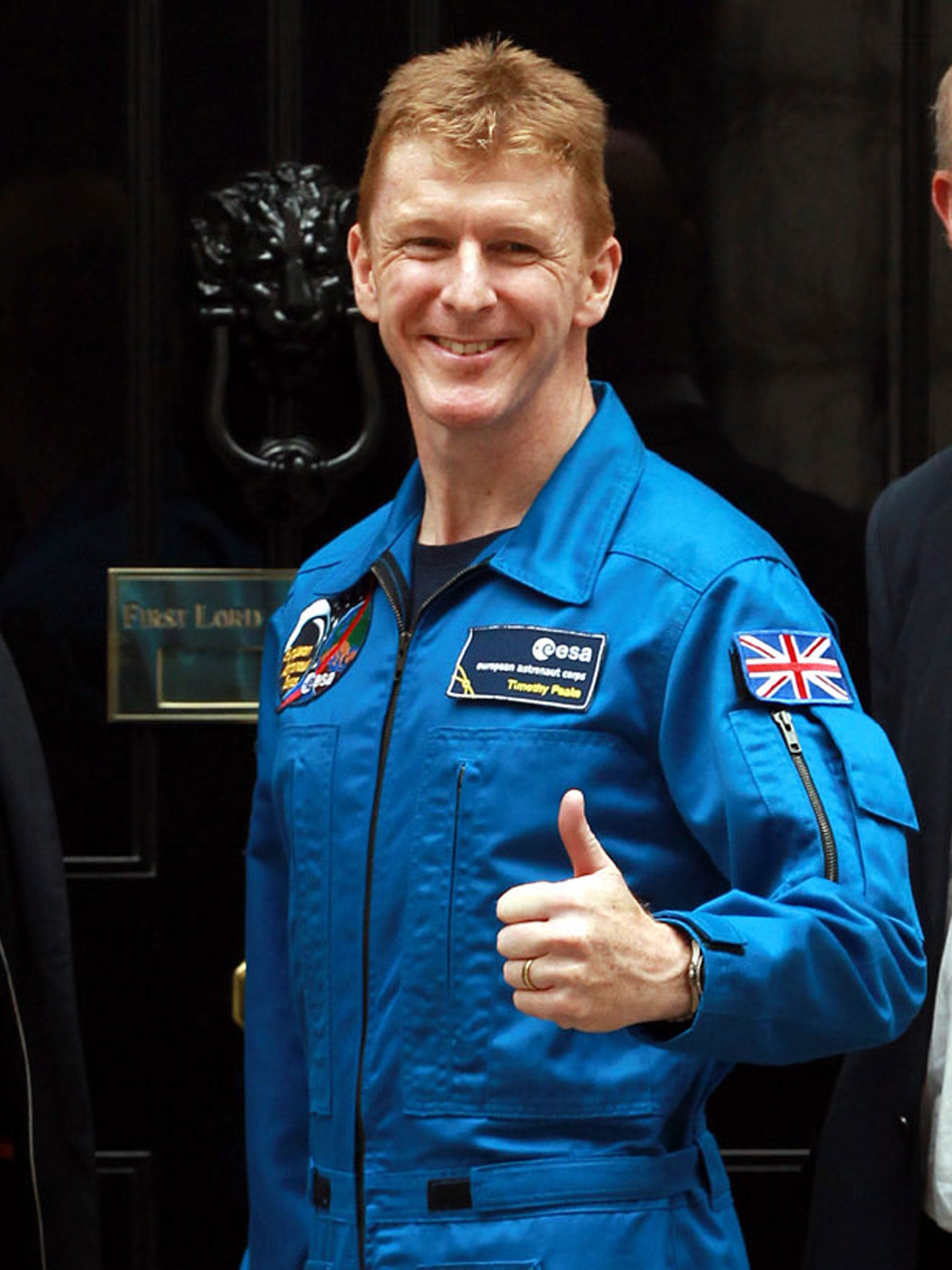
Your support helps us to tell the story
From reproductive rights to climate change to Big Tech, The Independent is on the ground when the story is developing. Whether it's investigating the financials of Elon Musk's pro-Trump PAC or producing our latest documentary, 'The A Word', which shines a light on the American women fighting for reproductive rights, we know how important it is to parse out the facts from the messaging.
At such a critical moment in US history, we need reporters on the ground. Your donation allows us to keep sending journalists to speak to both sides of the story.
The Independent is trusted by Americans across the entire political spectrum. And unlike many other quality news outlets, we choose not to lock Americans out of our reporting and analysis with paywalls. We believe quality journalism should be available to everyone, paid for by those who can afford it.
Your support makes all the difference.I see a Union Jack on his overalls. Surely some mistake?
Major Tim Peake is Britain’s first new astronaut in more than 20 years. From November 2015, the 41-year-old Apache helicopter pilot will spend six months on the International Space Station as a flight engineer. He was one of six European astronauts chosen out of a field of 8,000 candidates. As part of his extensive training, Major Peake had to live for a week in an underground cave in Sardinia and spend 12 days performing complex “zero-gravity” tasks underwater off the coast of Florida.
Then this mission should be a piece of cake, right?
Perhaps not. Major Peake, from Chichester, has a wife and two young sons. “In terms of my greatest apprehension, as a family man it is the concern that over the next three years I will be spending an awful lot of time away from them,” he said. Nevertheless, he said blasting off in a Soyuz rocket from Baikonur cosmodrome in Kazakhstan would be a “privilege”.
Is it a dangerous mission?
He claimed the risks of “low-earth” orbit – where you’re more likely to be smacked with debris - are minimal compared to those he faced in his former job as a military test pilot and helicopter instructor with the Army Air Corps. “Actually my future career is probably far safer than my past career. I’ve been involved in aviation for many years as a test pilot and I’ve carried out some fairly high-risk flight tests,” he said.
Could we see more Brits in space?
Science Minister David Willetts hoped that Major Peake would inspire a generation of British schoolchildren to take up science and engineering, similar to the “Apollo effect” felt in the United States following the Moon missions of the 1960s and 1970s. Britain currently contributes nothing to the Paris-based European Space Agency – the body that chose Major Peake for the mission – but on this occasion, a one-off payment of £17m helped to swing the deal.
Join our commenting forum
Join thought-provoking conversations, follow other Independent readers and see their replies
0Comments